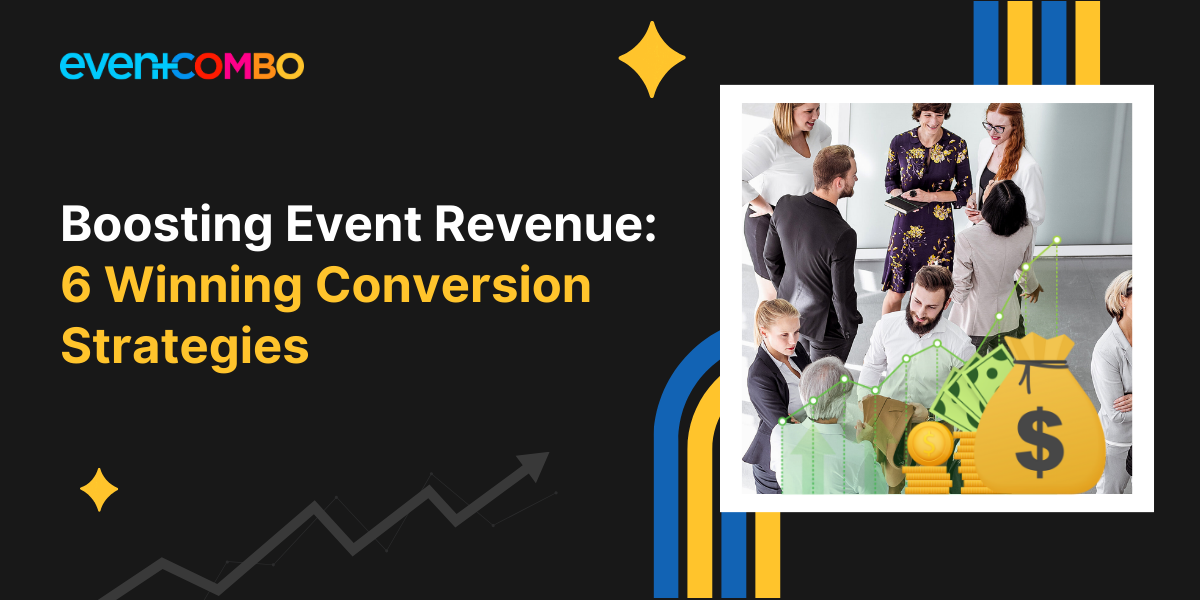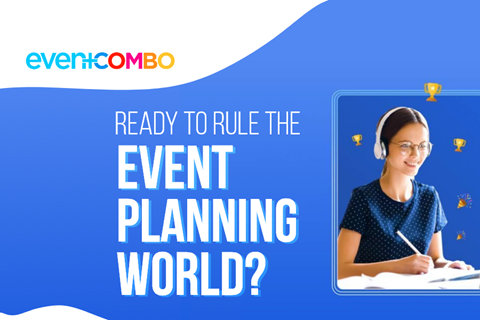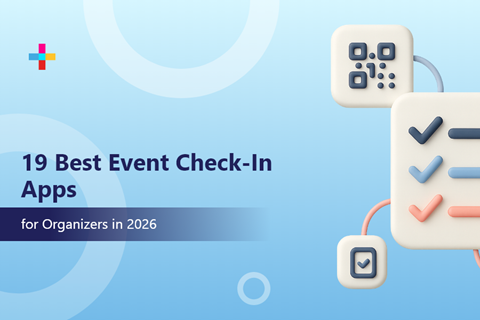

Events are a way for brands to advertise themselves, showcase their products, and increase revenue and conversions. And events come in all shapes and sizes–from small educational webinars hosting a hundred people to vast expos hosting thousands; from networking opportunities to product launches to show-stopping festivities where organizers put in an international call to an A-list pop star.
But events can also be expensive, requiring time, money, resources, and labor to set up. No matter how big or small, an event needs to be worth its cost.
So how can you make your events worth it? How can you turn your events into revenue generators and sales converters?
In this article, we’ll discuss a few methods to improve event revenue and conversions.
Event Trends
The purpose of an event is to generate buzz for your brand, develop strong partnerships, connect with your audience, and overall increase revenue.
Whilst the purpose of events hasn’t changed, the approach to them has.
The COVID-19 pandemic brought a lot of industries to a standstill, and in-person events were hit hard. Not only did regulation stop physical gatherings, but people became much more aware of their own health and much less likely to take risks with it. But events found a way to adapt. The demand for remote technology like conference calling and video streaming increased, and software developers delivered new and better ways to stream events to hundreds, thousands, or even millions of people across the globe.
In recent months, the effects of the pandemic have lessened considerably, and in-person events have seen a resurgence.
But there is still a big demand for virtual events and the incorporation of virtual elements into in-person events. Many organizers are choosing hybrid events, which allow in-person attendance and online streaming.
That is to say, brands have more flexibility and choice than ever before in how they want to approach their event planning, offering new and creative ways to increase revenue.
6 Methods to Improve Event Revenue and Conversions
So, let’s get into some of the ways you can increase revenue and conversations from your event.
1. Virtual and hybrid events
Technology has introduced new ways of increasing an event's reach, allowing people to participate even from far off places. By planning a virtual or hybrid event, an event planner can transcend geographical boundaries to reach people across the globe. Making your event hybrid means having a traditional in-person event, as well as allowing that event to be streamed online–for free or at a cost.
Implementing a strategic event marketing strategy is crucial to drive attendance and engagement in these formats. This will maximize your event reach and visibility by leveraging digital advertising, social media engagement, and targeted content marketing. It ensures a cohesive brand experience across multiple platforms.
Utilizing Event Scheduling Software can streamline the process of planning and managing your events, allowing you to efficiently schedule sessions, coordinate speakers, and handle registrations. This technology enables you to optimize the attendee experience and increase event revenue by ensuring seamless organization and effective communication.
Online streaming means no limits on attendance based on physical space. Once the in-person event is filled to capacity, there’s no need to turn away potential attendees–they can view the event remotely.
If you’re selling tickets, this means a lot more revenue. If you’re hosting a free event, this means more eyes on your brand. Either way, streaming your event online can net you a lot of precious user data, which can help you learn more about your audience.
The biggest benefit of allowing both in-person and remote attendance to your event is that you’re making everyone happy. People who want an in-person experience can have it. And those with health problems, health anxiety, and less disposable income to travel and find accommodation can also attend.
Figure out the best way to send videos to clients and watch your sales soar.
2. Sell tickets
This is the simplest way to monetize your events, and it works for in-person and virtual events alike.
Free events can attract hundreds of people but if only 1% of them care about what you’re offering, your return on investment will be disappointing. Hosting a free event is good for drawing large crowds but when you’re selling a brand, it can be worthwhile to narrow down your target audience. Having tickets cost money does just that–only people who are truly interested in your brand will attend. This is more likely to drive conversions, as your attendees belong to your sales demographic.
Selling tickets to your event also allows you to gauge ROI upfront and gives you a better idea of your budget. If you sell a lot of tickets, you can splurge more on the event itself.
And adding a price to something creates a sense of value. Attendees are more likely to feel like they’re a part of something important, encouraging them to invest more of themselves and their money in your brand.
Here are some tips on selling tickets to your events.
You can offer discount codes to encourage ticket sales in a few ways:
3. Include Sponsorships
Sponsors can invest money in your event for a mutually beneficial collaboration. And that’s money up front, allowing you to better plan your event and get some guaranteed ROI. The appeal for a sponsor is expanding the reach of their own brand, so there are a few things to consider when approaching potential sponsors.
Virtual events can include information about your sponsor on your landing pages, banners and ads on your streams, social media mentions, guest webinars, promos in the breaks of your streams, and links to your sponsors' websites or online stores. In-person events can advertise sponsors through booths, talks, meetups, signs, and banners. Hybrid events benefit from all of the above.
4. Sell Yourself
Your event is all about promoting your brand, so why not sell your own products and merchandise there?
If you sell physical goods, you can let people sample what you have to offer; if you sell a service, you can demo that service to prospective customers and encourage sign-ups; if you have merchandise promoting your brand, you can sell that. If you’re hosting virtual events, you can provide links to your products, merchandise, store page, or sign-up page. Don’t forget to set up your web presence for the best impact–you might need to spruce up your store, work on your social media accounts, or buy domain uk to host a website.
Selling yourself will net your event some revenue, as well as creating a few happy (and hopefully loyal) customers along the way.
5. Sell Vendor Space
You can sell space to other brands at your event. This gives other brands a place to advertise themselves and gives you a guaranteed income stream from your event. This can be selling floor space to vendors for booths and meet-and-greets, or even offering other brands the stage for their own talks and seminars. Event space is prime real estate, so utilize it for some extra revenue.
If you’re hosting a virtual or hybrid event, you can offer virtual booths and guest webinars for your vendors to promote themselves.
6. Utilize Advertisement
Not only can you advertise yourself and your sponsors, but you can sell ad space to any brand wanting to use your event to promote themselves.
For in-person events, ads can be displayed anywhere around the venue. For virtual events, you can advertise on banners, throughout streams, and on various web pages for your event.
Learn more about targeted advertising using Make’s guide to Facebook ads.
Use Your Events to Generate Revenue and Increase Conversions
Events aren’t just an excuse for a party. With proper planning, they have the potential to increase your revenue, drive sales, and expand the reach of your brand.
Use these simple methods to get the best ROI possible from your events, turning them into a guaranteed income stream.
About the Author
Jessica True is the Senior Director for Marketing Strategy at Dialpad, a PBX phone system and modern business communications platform that takes every kind of conversation to the next level—turning conversations into opportunities. Jessica is an expert in collaborating with multifunctional teams to execute and optimize marketing efforts, for both company and client campaigns. Jessica has also written for other domains such as influno and SME News. Here is her LinkedIn.

Professional certifications for event planners do more than provide a solid foundation in the field; they offer valuable exposure to the dynamic world of event planning and insights from prominent industry experts.

Choosing the right event management platform is vital for event professionals navigating the growing demand for in person , virtual, and hybrid events. Modern planners need solutions that offer robust features,...

Attendees don't notice good check-in. They only notice bad check-in. And planners know check-in is the first moment where their behind-the-scenes work gets exposed.